Search Results
Showing results 121 to 140 of 143
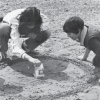
Hopper Circus
Source Institutions
In this outdoor activity and/or field trip, learners investigate the behavior of hopping animals.
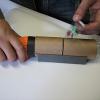
Camera Projector
Source Institutions
In this activity (posted on March 14, 2011), learners follow the steps to construct a camera projector to explore lenses and refraction.
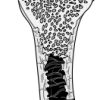
Round, Light and Hollow
Source Institutions
In this activity about bones (page 12 of PDF), learners investigate and compare the weight-bearing capacity of solid and hollow cylinders.

Safe in the Sun
Source Institutions
In this activity on page 13 of the PDF, use a special plastic card that has been painted with a chemical that changes color when it is in UV light.

Tasty Buds
Source Institutions
In this activity (1st activity on the page), learners explore their sense of taste and the structure of the tongue by taste-testing various foods.

Where Do We Choose to Live and Why?
Source Institutions
In this geography investigation, learners use a nighttime satellite image to observe areas of light across the United States and to identify patterns and spatial distributions of human settlements.
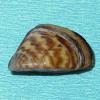
Mussel Your Way Through Photosynthesis
Source Institutions
Using zebra mussels (Dreissena polymorpha), elodea and an indicator dye, learners study the role of light in photosynthesis.
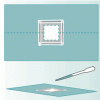
Tools of Magnification
Source Institutions
In this activity related to microbes, learners use water drops and hand lenses to begin the exploration of magnification. This activity also introduces learners to the microscope.
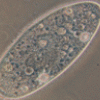
Biological Succession in a Microecosystem
Source Institutions
This laboratory activity helps learners understand the concept of biological succession by simulating the process in a microenvironment with various protozoans.
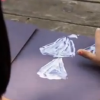
Sunblock Investigation
Source Institutions
In this "Sid the Science Kid" activity, learners set up a simple experiment to find out how sunscreen counteracts the effects of the sun.
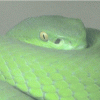
Can You "See" Thermal Radiation?
Source Institutions
Use this hands-on activity to demonstrate infrared and thermal radiation.

Canned Heat
Source Institutions
In this activity, learners explore how light and dark colored objects absorb the Sun's radiations at different rates.
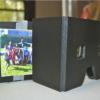
Stereoscope
Source Institutions
In this activity, learners construct a device that allows them to view 2-D images in 3-D.
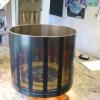
Bike Wheel Zoetrope
Source Institutions
In this activity (posted on April 18, 2011), learners follow the steps to construct a zoetrope, a device that produces an illusion of action from a rapid succession of static pictures, using a 16" bik
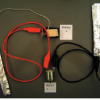
Water Body Salinities I
Source Institutions
In this activity, learners investigate the different salinity levels of oceans, rivers and estuaries.
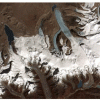
Earth's Energy Cycle: Albedo
Source Institutions
In this activity, learners experiment and observe how the color of materials that cover the Earth affects the amounts of sunlight our planet absorbs.
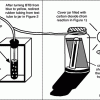
How Greenhouse Gases Absorb Heat
Source Institutions
Learners observe two model atmospheres -- one with normal atmospheric composition and another with an elevated concentration of carbon dioxide.
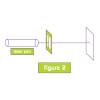
Forensic Science: Hair Sample Investigation
Source Institutions
This activity (on page 2 of the PDF under SciGirls Activity: Forensics) is a full inquiry investigation into how hairs from a crime scene are matched to suspects.

Science of Sunblock
Source Institutions
This is an activity (located on page 3 of the PDF under Stained Glass Activity) about nanotechnology making its way into everyday products, such as sunscreen, and how effective these invisible particl
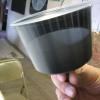
Mini Zoetrope
Source Institutions
In this activity (posted on March 27, 2011), learners follow the steps to construct a mini zoetrope, a device that produces an illusion of action from a rapid succession of static pictures.
